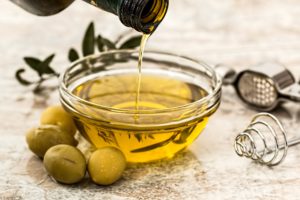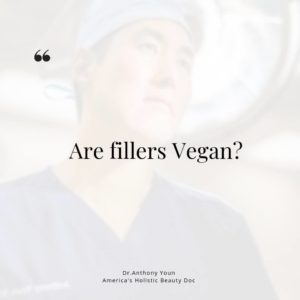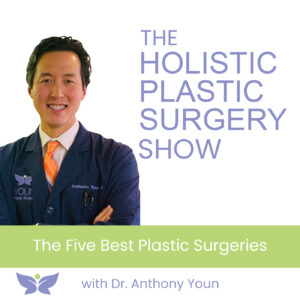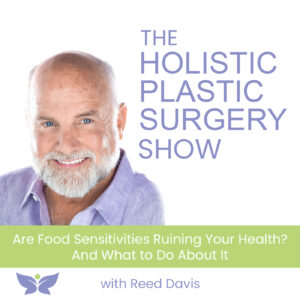I’d love to share with you the skinny on FAT. Yes, fat in your diet isn’t necessarily bad for you. In fact, certain fats are good for your health AND your skin. There are five types of fat, and here are my opinions on each of them:
1. Monounsaturated Fats – GOOD – present in almonds, avocado, hazelnuts, sesame seeds, almond butter and olive oil. These fats are anti-inflammatory and slow down the aging process. Eat these fats to improve your appearance and your health!

3. Omega-6 Fatty Acids – BAD – present in processed foods, vegetable oils (corn oil, soybean oil, safflower oil), and factory-farmed beef and fish. These fats are pro-inflammatory and bad for you. It’s best to avoid eating the foods that contain them.
4. Trans Fats – BAD – present in fried fast food, factory-made baked goods, and commercial frosting. We all know that these industrially modified plant oils are bad for us. Avoid them all at costs!
5. Saturated Fats – PROBABLY BAD – New studies are showing that saturated fats in our diet may not be as bad for us as we previously thought. In the setting of a low carb, high omega-3 diet, saturated fats may not significantly contribute to heart disease. However, when saturated fats are added to the standard American diet (high in carbs and low in omega-3’s), then saturated fats are inflammatory and should be limited.
One last tip regarding fat:
Ideally you want to increase the amount of omega-3 fats you eat and limit the amount of omega-6 fats you consume. One way to do this, if you are a meat eater, is to source your meat. Grass fed beef and butter (Kerrygold is a good brand) and wild caught fish have much better and healthier fats than standard, corn-fed beef and farmed fish. They cost a bit more, but they are much better for your health and skin.

The good news is that injectable fillers like Restylane and Juvederm aren’t made of animal products. The hyaluronic acid is actually from a bacterial origin, making the product itself vegan.
However, because they had to be tested on animals for FDA approval, they are not cruelty-free. This makes them technically not vegan.
A recent article in Glamour stated that Allergan and Galderma (the makers of these HA fillers) have planned to reduce their animal testing some 95% over three years. That’s great news for animal lovers like me.
Here are the latest episodes of my podcast, The Holistic Plastic Surgery Show. Please SUBSCRIBE so you don’t miss a single information-packed show!

In this episode of The Holistic Plastic Surgery Show, I countdown with you what I consider to be the five best plastic surgeries being performed today. For some of these, their dramatic results catapult them onto this list. For others, it’s a combination of great results with less risks and drawbacks. All of them are procedures that I perform regularly and give my highest stamp of approval.
But what surgeries are on this list? Listen and find out!
To learn more, listen HERE with Apple devices or HERE with Android phones.

Rashes, brain fog, ADHD, IBS, bloating, migraines, and more could be caused by previously undiagnosed food sensitivities. But how can you find out which foods are causing you problems?
On this episode, I’m joined by Functional Diagnostic Nutrition Health Coach and Trainer Reed Davis. We’ll reveal the differences between food allergies and food sensitivities, address why traditional medicine overlooks the effects of food sensitivities on our health, and much more.
To learn more, listen HERE with Apple devices or HERE with Android phones.

